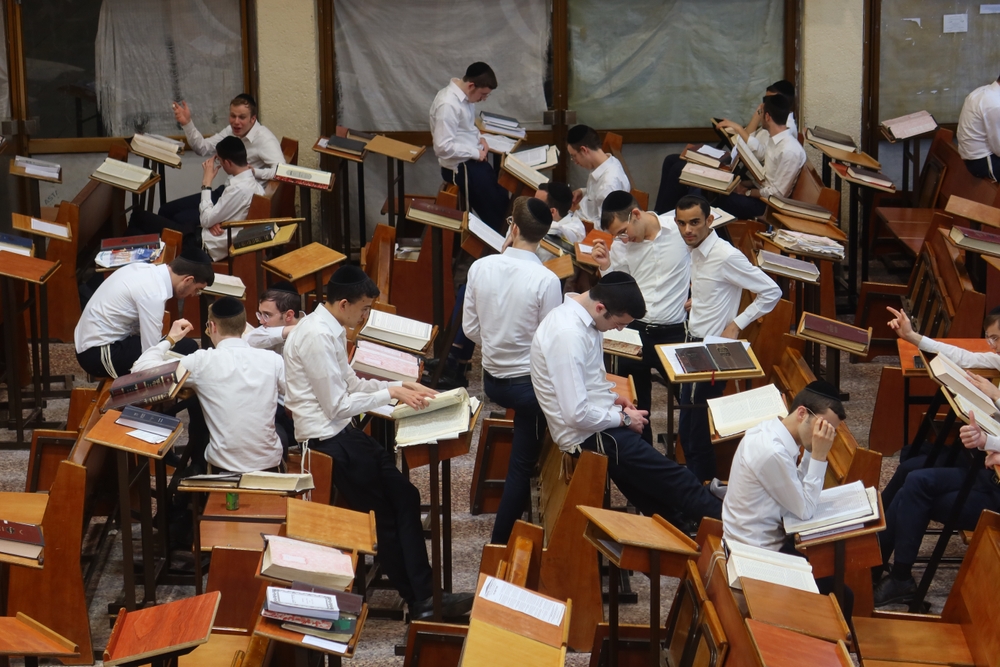The Deadline
You may know from past experience that I write a Parshah (weekly Torah portion) sheet each week. I’ve been doing it since 1999, and I feel a tremendous sense of responsibility to complete it in a timely fashion, as well as providing original content each week. I have a specific time each week I send it out, and I hate being late. When I am, I feel under the gun to get it out and e-mailed or uploaded to where it goes.
One item I publish doesn’t affect the majority of my readers and subscribers. I include the Shabbat-related times for where I live. This way, in my house at least, we know when Shabbat starts and ends, as well as the times for reciting Shema and Shemona Esrai. I know some other people look at it too.
My Excuses
Well, this week, I made a mistake. I was rushing and forgot to update the times so they still showed last week’s numbers. While that wasn’t such a big deal for the end of Shabbat, it was a huge deal for the beginning because it showed candle-lighting ten minutes later than it should have been. When I caught this mistake, perhaps twenty minutes before candles, I was horrified. It was too late to do anything about it. I quickly updated the times and printed a few copies for my shul, but I was very shaken. What if I was responsible for someone violating Shabbat God forbid?!
Now, in my defense, I was traveling this week. I was moving non-stop in a different time zone, barely sure of what day it was, and I mostly wrote the parsha sheet in an airport during a layover. It’s understandable that I could have made this mistake, as I’m only human. I was tired, a bit muddled, and it’s not that big a deal; I mean, seriously, do I even know that anybody only relies on my times? There were certainly a number of possible ways to excuse the error. But I wasn’t having it.
Who Truly Loves Me
It reminded me of a story. The Baal Shem Tov was once traveling on a Friday, and the roads were very wet and muddy. It was raining heavily, and he finally arrived at an inn where he stayed for Shabbat. Upon his return, he mentioned to his followers that he was afraid perhaps it was already Shabbat when he arrived there, as because of the darkness of the cloudy day he couldn’t tell for sure.
His followers jumped to reassure him. “Certainly, the Ribono Shel Olam (Creator of the world) would not let such a tzaddik (righteous man) as you come to desecrate the Shabbat, God forbid! Surely it was only the darkness of the weather that made it appear later than it was.” One follower, however, remained silent. He was Rabbi Zev Wolf Kitzes, known for his extreme piety and devotion to the Baal Shem Tov, as well as his acute truthfulness.
The Baal Shem Tov looked at him and asked, “Nu? What do you think?” R’ Wolf softly replied, “It would appear to me that the Rebbe must do Teshuva (repent).” At that, the Baal Shem Tov’s face lit up.
“You see?” he asked the men. “You all claim to love me so much, but only R’ Wolf was honest enough to say that I should do Teshuva for perhaps desecrating Shabbat. He cares about me more than all of you!”
Solutions, Not Excuses
If I were to excuse what happened, I would not reflect on the matter and wonder why it happened. I would not regret what happened and try to prevent a reoccurrence. It appears to me I need to improve my shmirat (keeping) Shabbat, or perhaps my kavod (honoring) Shabbos, or something along those lines. I haven’t fully delved into it, but if I were to look for excuses, I would not think about it, nor wonder why Hashem (God) made this happen. Everything happens measure for measure, and it’s up to us to look for our shortcomings and repair them.
Today, I read an amazing story. Rabbi Moshe Feinstein z”l used to pray and say Tehillim that he should pasken (rule) correctly when people sent him questions. Early one morning, during summer break, R’ Moshe was seen walking outside and saying Tehillim. Someone asked him why he didn’t take advantage of the schedule change to sleep in a bit. R’ Moshe responded that he knows people from around the world send him questions and he needs to pray that he not make mistakes and mislead anyone. (!)
A Sweet New Year
R’ Moshe understood the gravity of his decisions, and knew he had to be correct. Not only would he not offer excuses for his mistakes, but he would take steps to ensure he made none (which included reviewing Shas (Talmud) and halachic works constantly.) I may not be R’ Moshe, but I am no less obligated than he to work on avoiding my own mistakes. As we begin the month of Elul, we ought to take responsibility for our actions. Instead of excuses, let’s come up with solutions. Those will stand us in better stead when it comes time to be judged by Hashem. On Rosh Hashanah, if we are able to say, “Yes, I found a problem; it was my mistake, but I’m making sure it will never happen again,” then Hashem will have no reason, and maybe even no excuse, not to grant us a sweet new year.
By Rabbi Jonathan Gewirtz
Rabbi Gewirtz (Operation Inspiration) welcomes comments and feedback. Write to him at info@JewishSpeechWriter.com to share your thoughts. You never know when you may be the lamp that enlightens someone else.


